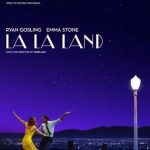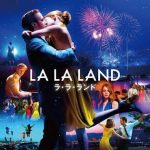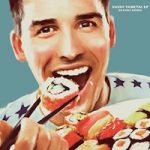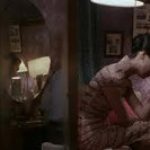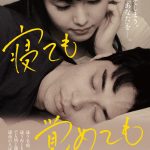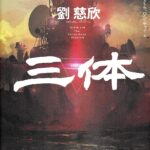Date: 2019 June 10th
By Skpe
Interviewer: Joe Onishi
ーーLet’s start from North Carolina, where you were born and grew up. Before you went to Brooklyn.
William Brittelle (WB, following) I grew up in a small conservative town in NC, and then moved and went to school in Nashville, Tennessee, where a lot of country music gets made. After that, I moved up to the city for grad school. But I dropped out of grad school after a couple years to play in a band before making my way back into composed music.
ーーTell us about your religious background, I heard that you are from quite religiously conservative town. Especially for Japanese readers, it’s quite hard to imagine the environment you have coped with it. So can you tell me if there is any sort of restraint or pressure from where you were.
WB Yeah. I went to Christian elementary school. You either believe that Jesus died for your sins, and you will be saved by him, or you don’t, and then you go to hell, there’s a real binary there. I was not really aware of other religions and it’s a very sheltered world. I don’t think it’s dissimilar to other rural areas in other countries, where you’re just not really exposed to much else. And actually my family left the church before I did. So I never experienced the day recognizing myself losing faith. It was more like we left and then I had to figure out how to patch things together. But in my 20s, I really got interested in Buddhism. The parts of the world, the ideas of there being a reality, being emergent. And having the way that Buddhism traditionally conceptualized as the self as not being discreet. Those ideas gave me a lot of solace and a structure for a while.
I had a harder time with reincarnation and karma, because it felt more faith based to me. But at this time, I think of myself as an agnostic, and I feel peace with that. And it’s an agnosticism that is reflective of my experience with meditation and conclusions that I come through, from meditating on thing through doing breath meditation on these topics. Just recognizing trying to figure out solid answers to all of these huge existential questions is just doesn’t really meet anywhere.
But this project was getting to the bottom of all that for me. I can imagine there are people grow up essentially culturally Christian. And a few of my friends from Japan described themselves as culturally Buddhist. where Buddhism was a part of how they grew up, even though they wouldn’t consider themselves practicing Buddhist. There are aspects of my life that are culturally Christian, there are certain ways I think about things that are reflective of my upbringing. Regardless of what I do, or how I try to unpack things, or how many books about quantum theory that I read. I’m still going to emotionally want the world to be structured in a certain way. To think about God in a certain way, to think about things in a certain way.
ーーTell me your music activities when you are at college, back then.
WB So when I came up to study, I was also really interested in jazz. I studied with Mike Longo, who was the music director and pianist for Dizzy Gillespie for a while. I have great respect for jazz performers which I don’t have that kind of facility. Although I did take jazz harmony, jazz, voice leading, jazz arranging, really, really seriously. And I think my harmonic sense is really defined by that study from those few years. I studied with Mike Longo much more than any classical harmony.
I was also playing in a band and working with Richard Lloyd (ex Television). He was producing our record, and then we’re playing some shows with him.
ーーHow did you think about being in academia? Still lots of 12 tone music there? And how did you connect yourself with pop music?
WB Either neoclassical or post romantic stuff, or 12 tone stuff. At that time, engaging in a real way with any kind of popular forms was still frowned upon. Eventually I got disenchanted with the academic side of classical music. I felt I was spending too much time in the library.
It’s not necessarily I was looking to merge pop music and classical music, I just felt I wanted to do something that was reflective of who I was and where I came from, and what I was interested in. And this process of assimilation was really difficult to go through in an academic setting. Eventually I just hit the wall, felt like I couldn’t do it anymore.
ーーBut you also studied with David Del Tredici, a classical composer after that.
WB I dropped out from school and I enrolled as a non matriculating private student with him and studied another two years, just working with him because I wanted to be responsible for my own education. I wasn’t trying for a degree, just focused on writing music for myself. He’s an incredible orchestrator. And really, really insightful once he gets what you’re trying to do. And very, very direct. The first lesson I had, he just picked up my music and threw it off the piano. It was all about actual real people. People who play this music, and people that have to listen to it and understand it. You have to always be in reality. Think about what’s actually possible and what’s actually going to be or not going to be effective. Not getting caught up in your own intellectual loops, that are never going to come across to anybody else. That was really important for me. Because at that time, I was interested in more esoteric things, and it reframed what I was doing.
ーーThen also you are playing in a band, how do you connect with composition again?
WB So when I dropped out of grad school in order to make a living, I started working in at a rock club, I’m doing booking and promotion And at that time, I had a pop punk band, more influenced by Velvet Underground. And but it was the same time that bands like the Strokes, Yeah Yeah Yeahs, Interpol, Animal Collective, Dirty Projectors, Grizzly Bear were being really successful. So this is a really exciting time to be in a band.
At first it was a relief to be out of the academic world, just playing music in front of people, yelling at people and doing something loud, feeling like a real visceral sense of music making, instead of sitting and writing things down on paper. But I soon realize that I couldn’t really find my voice in that world either.
I just had bigger ideas that wouldn’t fit in that in a four person context, especially when one of them didn’t really read music. And I felt really limited after a while, I needed to come back to composing.
ーーTell us about your first CD, “Mohair Time Warp” (2008). There are obviously so many textures, and a lot of influence came in.
WB When I was in a band, I was a scream singer, and I never really learned the right way to scream, so I blew up my voice. After that, I focused on writing when I was learning how to speak again with speech therapist. I could talk in short spurts, but I couldn’t talk for long periods of time. So I basically just started writing all the text, and then chopping it up into little snippets that I could sing. That’s how I like recorded it, or plotted it out. That was the first time I really was able to integrate all of the different influences that I had, it was in more of a collage format. It jumps around all over the place. But at least I felt I was getting everything in the same arena, developing a style that was really reflective of who I was, and what I was interested in and where I came from.
ーーIt seems that your creation is also influenced from punk. What does “punk” mean to you?
WB It was especially from hanging out with Richard Lloyd, who was part of booking the first show at CBGB, who was on the front lines of New York punk music. He talked a few things with us and that really resonated with me.
One was that the most punk thing that you can do is do the thing you’re most excited about. If you’re not completely fucking psyched about what you’re doing, no one else is going to care or no one should care. That idea of just trying to imagine the exact person you want to be in the exact thing that you want to do musically, and then do everything you can, not compromise that along the way. At first, that is the part of reason why I wanted to be in a band, but now become part of why I want to do these big crazy projects that are incredibly difficult to execute, and take a great emotional, and mental toll on me. It’s because they’re the most awesome things that I can imagine doing, and I really liked the idea. That’s your guiding principle. I believe in that and I like that.
The other thing is, that what’s truly punk is to not be responding to anything in opposition, but only be responding to things with positive motivation. I think punk gets misconstrued sometimes. So you’re not doing something, because somebody else tells you that you can’t do it. Punk is rebellious only because somebody’s just doing what the hell they want to do, not because they’re acting in opposition to something else, because then you’re still defining yourself by something else. To me, what’s truly punk is defining yourself by your own values and what you want to do and who you are and pursuing that dream, regardless of what other powers may be, trying to push you in one direction or another.
ーーSo it’s more related to self positive understanding of punk mentality.
WB You can be whoever you want to be. There are all these people moved here from the suburbs, or wherever and just remade themselves into whoever they want it to be. they literally would renamed themselves, they would just imagine a new reality from themselves, and then bring it into existence. And I think that’s incredibly beautiful. My first exposure was Hair Metal, through bands like Def Leppard and bands that have really fallen out of favor now, but there is still this idea of remaking yourself. If you’re not satisfied with reality, just reimagine it, and then go after. that’s really beautiful to me. it’s something that I’ve taken solace in as I’ve continually made music that I feel like is fundamentally misunderstood by a lot of critics or contextualize in a way that I don’t like or doesn’t make sense to me. When you’re working with presenters, they don’t want you to put a guitar in something or don’t want you to put a synthesizer in something or don’t want it to be too loud, or whatever it is, because you’re constantly asked to compromise what it is that you want to do. But I think that idea of sticking to your guns and following your gut is punk. It’s not punk in a rock way. It’s just punk in a way that applies to many different kind of music or activity. I think.
ーーHow did you get to know hair metal?
WB When you grew up, like I did in the 80s in really sheltered environment in the south, I had no idea that jazz existed, nor classical music existed. And we finally got cable when I about 10, then I became aware of metal. At that time, metal was all about androgyny and vague Satanism, vague anti-christianity in a way. For a somebody who was starting to question Christianity, it was really, really alluring. There was also a lot of the music videos. These bands position themselves as gods, actually they were on stage, and they were larger than life and playing in front of 30,000 people. Also there was always a shredding guitar solo in it, and the singers were usually really good singers. But I think the reason why it remains influential for me, especially with my new record, is not because I think that it’s by and large, technically or emotionally convincing sub-genre of music, it’s because I grew up with it. And part of this process that I grew up with owning the influence that they have. Not because of their artistic merit, because of their positioning in my life, and allowing those things back into my compositional world. Like trying to heal the gulf between there because I felt like so much of my adult life, I had come to define against my upbringing,which is not a very punk thing to do. I just wanted to make a positive dialogue with each other, with those two parts of myself.
ーーSo musically you put some 1980s element in your composition, for example, like Prince.
WB Definitely, Prince. And the general 80s aesthetic of vintage synthesizers and some drum machines. That’s something I grew up with, it’s just part of the language that I’m attracted to. It’s interesting, because a lot of 80s sounds, mainly vintage synth sounds, and even certain guitar tones, providing nostalgic elements. Even for people grew up in the 90s, there is something that culturally we recognize as being nostalgic. And I really liked that power. I like being able to reference something that for me is intensely nostalgic, but also to feel like other people are, at least recognize that what I’m trying to do. But that’s the aim. I think that’s really, really cool.
ーーTalking of your label, New Amsterdam Records has started almost 10 years ago. How did you start that, trying to output your music first or you want to make a scene with other artists?
WB In 2008, it came from meeting with Judd Greenstein and Sarah Kirkland Snider, the other two composers that I started with. Actually Judd had launched it previous to Sarah and I coming on, it’s a communal label where just people were banding together, that we’re making different kinds of music. There were a couple of releases under that banner, and then we reformed things. But in the process of making “Mohair Time Warp”, I knew there wasn’t an outlet there for it. And the people in that community seemed really responsive to what I was doing. And then I also found other music in that community that I felt really passionate about. Also because the climate was changing so much with the internet and Napster, there were opportunities to think about structuring the label in a different way, that would be able to support work not defined by traditional genre boundaries.It’s still a challenge now. It’s funny because a lot of people in the classical world seem interested in “genre fluid” music. But it still seems like when you put strings and stuff that to the rest of the world that reads as classical or reads that you’re intending to communicate some somehow along the classical spectrum, which I don’t feel like I’m trying to do.
So it feels like in some ways, things have gotten a little more conservative over the last few years, as there’s money returning through streaming to the industry. But that idea was there’s just the set of material and a group of people that really cared about what each other were doing, like Missy Mazzoli was another person who was there really early on. And Daniel Wohl, who has the new Nonesuch album, and there’s a lot of mutual admiration, and it just tried to divvy things up and figure out how to create a infrastructure for ourselves.
ーーHow did you choose three musicians for the partnership and how did it go?
WB Three a year for three years is the idea. It depends on who has a big giant project that is right for this. Caroline Shaw had all this wonderful string quartet music (“Orange”), felt like a really wonderful first statement for her to put out there as a string player. And then I’ve been working on this record for seven and a half years. And that’s, at least in terms of scale, certainly fits with the aim of making grand decisive statements are representing grand size of statements with a partnership. And Daniel Wohl had also been working on his record (“État ”)for a while, and we felt like, it’s an intimate record in a way, but in terms of the level of production on it, I’ve never heard anything that’s even remotely classically influenced. That has that level of detail and the production. It’s really fascinating since what he’s working on is just like, totally bonkers. Going through with an exacto knife and just like carving every little corner of it perfectly.
ーーLet’s talk about your piece then. so can you tell me about the meaning of the title first, “Spiritual America”. Because often Nonesuch records releases Americana records, it’s more traditional in a good sense but your work is totally different from that.
WB The title existed three years, or four years before, we even figured out that this would be part of the partnership. This project predates the partnership, even the initial conversations about the partnership by a couple of years.
Part of the title for me was, a way to create a portal into the what is actually specifically narrative. And in my mind, there are specific characters, and there’s a specific plot and all the reference points are pretty specific reference points for me. But I also wanted to create a broader context. There is a fact that a lot of people going through an X period of existential angst, in your late 30s. That is certainly not unique at all. And growing up in a small town or rural environment in a certain country of religious environment, then moving to a bigger city and diversifying the way that you think about things, it’s also certainly not a unique experience. So I wanted the title to reflect the commonality there In a way that brought people in.
ーーAlso lyrics, it’s very unique and has some kind of styles. Is that your personal way of writing?
WB Yes.With “Mohair Time Warp” there is obviously really dense text, and there’s a lot of words in “Television Landscape”. It was also all original world.So what I tend to do is, I write a lot of books of poetry, mainly for myself. And then as I’m working on projects, I keep a book and I just keep writing and writing. Form these ideas, and gradually form them into songs. But as I’m writing the music, a lot of times, I’ll change the words, according to what the music demands are choosing different parts. So it’s not like one happens, and then the other, it’s all in dialogue.What I wanted to feel with this record is that it’s almost like a time capsule. It’s a record where there’s certainly a surface level of experience. But I wanted to feel, at least for me, there was crystal in substructure where everything connects, even musical gestures that come back at certain times, almost like motifs or something. In terms of the text that I was just saying, everything precisely the way that I wanted to say it, and all of the songs that end up on the record, have tons and tons of alternate versions. And so, it took a long time to get all that structure. Because ultimately, it was a record that I made for myself that I have to. It goes good if other people are interested in it, but ultimately, it’s something for me.
ーーIt’s a very big picturesque, futuristic piece of art. Also I felt there are elements relate to science fiction. I was wondering if you have any kind of reference from that.
WB I’m definitely a sci-fi fan. Certainly movies like Terminator, Alien and Blade Runner, were hugely influential on me, and the connection between sounds that we associate as being nostalgic, and then images that we associate collectively as being post apocalyptic. There’s weird overlap that really fascinates me. I feel both nostalgic, and I feel it resonates in strange and sad ways with what is happening on the earth now.
I also suppose collage nature of the musical language also makes you feel that. There is more fundamentally different approach to form, based on thinking about rates of change, as opposed to ABAB, opposed to having a form. I wasn’t thinking about a song form, and responding to song form at all, ever. I was only thinking about within that song, what structure are you setting up? And how do you create momentum by either doing something longer or doing something different? And how much momentum can you create. Can you create by doing something drastically different. Like, what key do you need to go to? How unrelated things needed to be in order to create propulsion at this moment, so there’s its own sense of internal emotion. I don’t actually have ADHD but I might have sort of musical ADHD. I’ve never really responded to minimalism,honestly, although I respect it. But it’s not a form of music that I connect with.
For example, whereas like Alban Berg, when I saw Lulu at the Met, it became one of my favorite things I’ve ever seen in my life. On the other hand, I couldn’t bear the methodical nature of “Einstein on the beach”. For me there is something about the way I think about music, in terms of pacing and form. It is actually pretty different, but it’s a real thing for me. Sometimes people hear my work and they might feel slightly wacky. But my hope is that when you get used to it at a certain point, it ends up feeling as natural to them as it does to me.
ーーIn your new album, “Spiritual America”, I felt musical elements are internalized and strturturalized deeply. It’s not just a simple collage. It seems that you got into a new phase of composition, I think.
WB That’s the way I feel about it. It’s less about juxtaposition and it’s almost more about building a three dimensional object that we’re, that refers back to itself, that’s a world. So like, certain things make sense. When you get to the next part of it. It’s all reflecting back on itself and looking forward. Then if you internalize the whole thing, then everything starts to make sense. But if you see like one little component of it, or even listen to one song, you get a part of what’s happening, but you’re not actually within the world itself. That’s something I wanted to try so much. I wanted something that had emotional impact that is deeply, deeply thoughtful, and went beyond intuition, and into hyper level of structuring, but retain the kind of formal surprises and pacing that I imagine that I naturally gravitate towards.Does that make sense?
ーーIt makes sense. But it certainly takes time. Because you don’t allow yourself putting, for example, guitar solo for 30 seconds.
WB It took forever. It’s only 40 something minutes of music but It took a long, long time and redoing things over and over and over and over to try to figure out how to execute it. I don’t think that makes it good. I think somebody can work on something for a long time. But I do think that it’s important, if somebody’s interested in the record, but put off by certain elements to know that there’s a great deal of thoughtfulness behind it. Maybe there’s some trust that can be developed there because of that.
ーーI think vocal (main vocal by Jenn Wasner of Wye Oak) and chorus (Grammy–winning Brooklyn Youth Chorus) is a very important factor in this album. Also the mixing is very unique, definitely because of a engineer.
WB Zack Hanson, who I mixed it with who’s worked with a number of different groups, what works out at Justin Vernon of Bon Iver studio. I am a huge fan of 22, A million, the recent Bon Iver record, I loved the way that was mixed. And that was the closest thing out there to what I felt like I wanted to do. So I found him. And luckily, he was down and we just spent, hours and hours, after it was all track just mixing it out there. First of all, we had three or four mics on every instrument, which is rare to do with an orchestra. We had a lot of isolation, we recorded each section in isolation. And then within those sections, we also had isolation. For example, with the strings, we’ve isolated out each subsection of strings. And then we were able to run all of that through this analog board with all these analog compressors and pre amps and everything. So just out of the gates, I felt like we were getting a really, really wonderful sound that we had a tremendous amount of control. Because we had all of these different mic options at certain points, it sounds like you’re just getting a pickup right on the string, it sounds like you’re listening to something in a cathedral. And I wanted to have all those different options, because that’s part, I was trying to do a studio orchestra record like you mix a rock record, or, like Radiohead mixes a record.
ーーAnd also, I feltl in your album, there is some kind of theatricality. Everything is independent, and based on the dialogue.
WB I think part of theatricality that I’m really interested in is, Prince. There are really intimate but in a way that felt epic, or epic relatable. That’s something I really love. attracted to music is where you can do things that have a feel of a certain scale, but maintaining their intimacy. Certainly for the theatricality of it is something that I’m attracted to for sure.
ーーYou do a lot of collaboration with OPN, Son Lux and Wye Oak. How do these experience influence your work?
WB I was really fortunate to have a lot to write orchestral music and a lot collaboration with other people.That was really fortunate because I think you can go to school forever. But if you’re not out there actually writing for orchestra and hearing it back, working with other people on it, I felt a lot more free to try different things out. And that was really cool. As opposed to you know, you have your own 10 minute orchestra piece and you feel like everything’s on the line and you don’t want to go outside of the bounds of what you know how to do. I think that was all really a huge learning experience to finally figure out like, the way that I’ve always been attracted to writing for extra that it took me a long time to get to the point where I felt like it was even close to moving around the ensemble the way that I wanted to, or to using different sections in a way that was like reflective of the larger musical worldview that I have, and not just regurgitating things what I heard. And there’s no reduction of anything on this record. It’s all written directly for orchestra.
ーーEspecially in Japan, writers tend to categorize your label as “Indie classical music”, but it’ seems it does not fit anymore or it is just a part of it at least.
WB It’s actually getting a smaller and smaller part in a way. When we use the word indie classical a while ago, we were trying to convey was an independent spirit, more like an independent film.
ーーSo you mean economic independence or independent ethos, so not necessarily mean music elements.
WB We did not mean it in a way that was reflective of indie rock. Because early in the day we have no dialogue with indie rock. There’s been more direct collaboration now, but that didn’t exist at that time. Then once those collaboration started happening, then it became a little bit more certain that people started associating it with, or started thinking of crossover between classical and indie rock. But which is not, if you go through the catalog, is not really reflective of a lot of music that’s in the catalog. And especially with recent releases is not reflective.
I think what we’re really interested in is people that have really individual musical visions and are on path of trying to fully realize their influences, or stay true to their influences and fully realize their vision, regardless of how it fits in. And the more diverse that vision, the more diverse experience, the better. So we’re trying to get out of our little extended classical world, we are into a larger world of diversity.
That’s where “genre fluidity” really comes in. it’s not because I’m ignoring genre in “Spiritual America”, I’m trying to do is embrace the meta-musical information. I’m trying to embrace all that extra information, like trying to use synth that makes you feel 80s, use that as part of the art making. That’s what the spirit of “genre fluidity” is about. At the center of a genre fluid system is not a genre, it’s an individual creator. And everything is contextualized by creator’s context and intent, not by critics categorization.
Genres, like rock or classical, aren’t real. These are invented ideas to help us talk about them. But the real thing is the music itself. There are somebody made incredible decisions and find amazing discoveries that fit in, in this incredibly deep way with what was happening culturally. It’s a really magical, incredible thing that comes from individuals. All other crap isn’t real.
ーーSo on the whole, future releases from New Amsterdam Records, is it going to be more composer oriented?
WB The process of composition exists differently in different traditions.There are hip hop tradition, or jazz tradition, or noise tradition etc, While there are different cultural traditions, their compositional approaches are diverse. It’s often a lot more collaborative, or it’s often not written down, or it’s often generative, or you have a group that’s coming up with stuff. I think it’s a period of questioning for us to try to figure out how to support those. Everything that we represent is not streaming friendly music, so incredibly challenging time in the music industry where there’s basically no money for this kind of music. It’s thoughtful listening music.
ーーTell us your upcoming news, do you have any plans to come to Japan?
WB I don’t actively have plans to come to Japan, but I certainly would love to, and have been targeting next summer as a time to-go. Would love to find some way to do the chamber version of “Spiritual America” there. Let me know if any folks jump to mind that I should connect with on that.
And the only release I have in process is a short EP with the LA-based ensemble Wild Up entitled “Alive in the Electric Snow Dream”. No real time table on that.
However, I have been producing a bit, and am currently working on two albums by composer/performers who happen to be of Japanese descent: pianist Erika Dohi and violinist Michi Wiancko. I’m extremely excited about both records – they’ll hopefully be out next year!

![critique magazine ECRIT-O vol.7 [feat.1]Alternatives of Music Critique [feat.2]Our/My Weekly JUMP](http://ecrito.fever.jp/wp-content/uploads/2019/04/494b51aa06113f256a5d807984ed2f51-1024x689.jpg)



